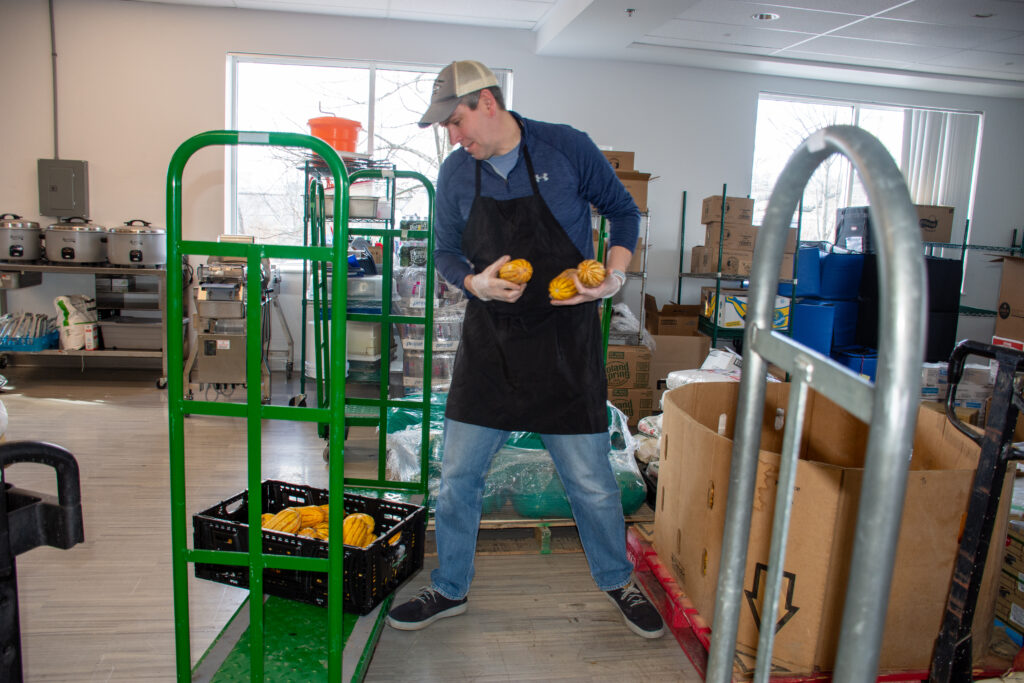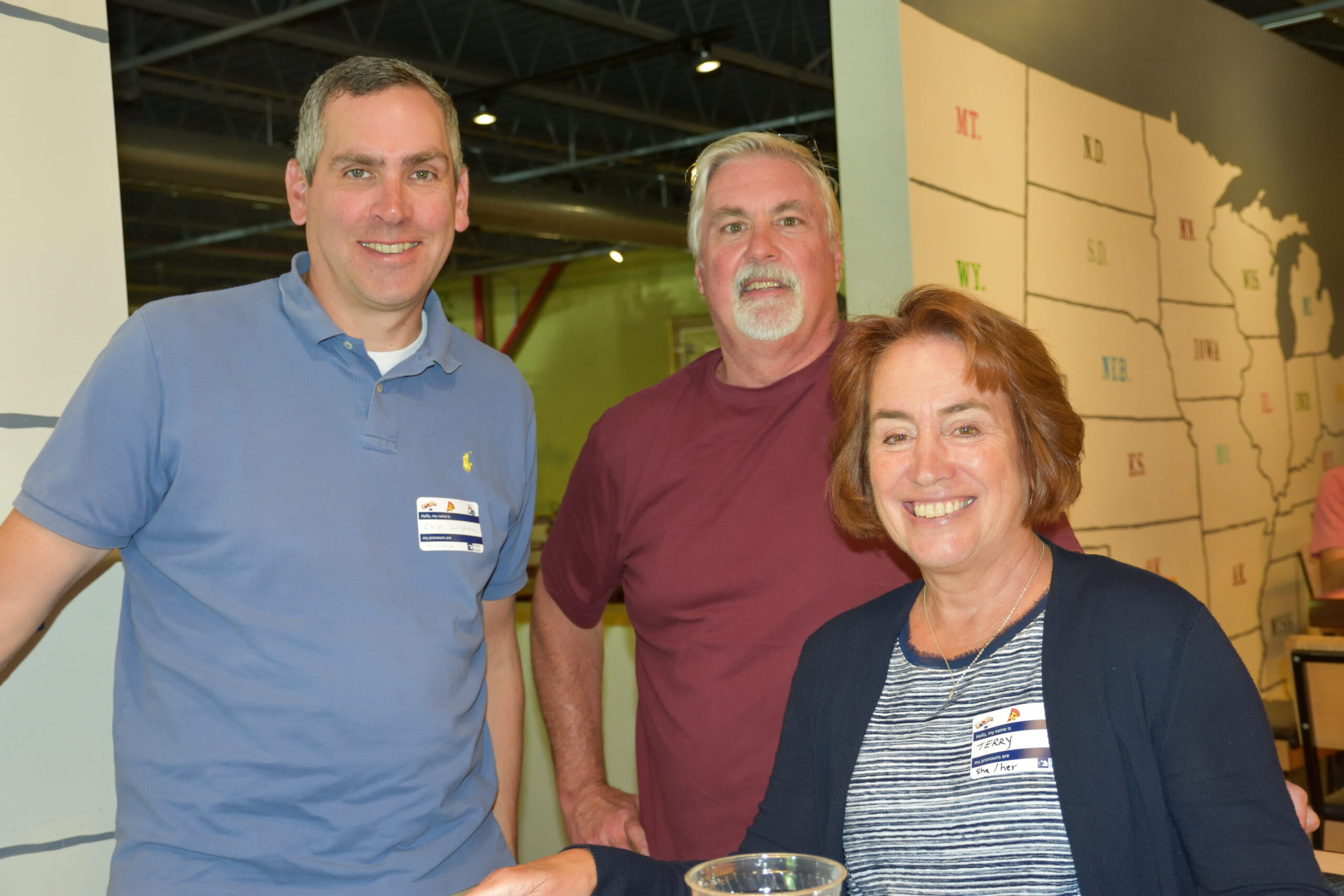How did you first get involved with Preble Street?
About 15 years ago, I started volunteering at the (then) Soup Kitchen with a group from my church, St. Alban’s Episcopal Church in Cape Elizabeth. I spent the first five years or so on the cleanup crew before I finally graduated to kitchen duties!
What do you do when you’re not at Preble Street?
Until recently I led the Marketing and Strategy teams at Hannaford Supermarkets. As part of that work, I had the opportunity to learn even more about Preble Street through the various partnerships between Preble Street and the Hannaford Community Relations Team and the Hannaford Charitable Foundation. Both groups have been great supporters of Preble Street. Recently, I made a shift to step out of corporate life and also spend a little more time on my side hustle creating social media and related content. I share (sometimes) funny content about having teenagers, being married, and other everyday relatable stories under the “Leighton Show” platform (Instagram, Facebook, TikTok). I’m working on a book and some other extensions as well.
When not doing that, I’m spending time with the family or trying to catch a striped bass from my kayak.
There are a lot of nonprofit organizations in southern Maine. Why do you think Preble Street stands out in the crowd? What is it that Preble Street does better than anyone else?
I believe the leadership team and staff at Preble Street are second to none. They are highly skilled and experienced, care deeply about their work, and they demonstrate this commitment through tireless efforts. I’d also note Preble Street is incredibly agile, as can be seen in its various pivots and growth through the pandemic and at other times in its history. Leaders at Preble Street continuously ask how they can better serve the needs of our communities and if there are gaps they can help fill.
We know why that is important to the people we serve, but why is that important to you or to others who might consider supporting us?
Because of their capabilities, experience, and resources, sometimes Preble Street is the only organization that can step in to fill a void. There are many people who would not have received the help they need without Preble Street. And the financial support of our donors is a huge part of making this possible. I’d also like to mention that if anyone wants to get to know Preble Street a bit better, volunteering at the Food Security Hub in South Portland is a great and easy way to do this.

What are the biggest challenges Preble Street faces looking to the future? Or what are the specific projects/aspects of Preble Street that you are committed to?
Despite Preble Street’s efforts, the scale of some of our community’s problems continues to grow. Particularly pressing right now is the challenge of supporting so many unhoused individuals. We all see stories in the news about this on a regular basis. Preble Street’s work is highly visible in this area, and there is also a tremendous amount they do behind the scenes to work with various agencies and groups to push toward solutions. Recently, Preble Street published seven recommendations to address Portland’s unsheltered homelessness crisis. These are meant to be practical plans to help make real progress in this area.
Being a nonprofit board member can be very demanding and time-consuming. What makes it all worthwhile?
Being able to observe the impact Preble Street has on so many clients. I have the opportunity to see and hear so many stories through Board meetings, quarterly reports, and in other ways. These are stories of clients being housed for the first time, of someone achieving a milestone in their road to recovery, or any one of the countless ways Preble Street helps people take steps toward leading better, longer, and fuller lives.

